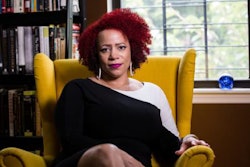John Hope Franklin Holds a Mirror to America
By Ronald Roach
Mirror to America: The Autobiography of John Hope Franklin
By John Hope Franklin
Farrar, Straus and Giroux, November 2005
416 pp., $25.00, hardcover; ISBN: 0374299447
It’s the rare historian whose life looms as large as the events he or she chronicles. Dr. John Hope Franklin is one of those rare beings. His life and times, as described in the newly published Mirror to America: The Autobiography of John Hope Franklin, report as much about the struggle for Black equality as any academic text covering American history in the 20th century.
Born January 2, 1915, Franklin, the James B. Duke Professor Emeritus at Duke University, remains an active public speaker and writer. He is the author of numerous books, including Emancipation Proclamation; The Militant South; The Free Negro in North Carolina; Reconstruction After the Civil War; A Southern Odyssey: Travelers in the Ante-bellum North; and From Slavery to Freedom: A History of African Americans. While his celebrated history books largely examine slavery and early Southern history in America, Franklin emerged as a frontline observer and occasional participant in some of the most significant developments in the 20th century struggle for African-American equality. Included in Mirror to America are noteworthy recollections of the Black intellectuals and scholars who emerged in the aftermath of Reconstruction and the earliest days of Jim Crow segregation.
As a successor to the earliest generation of Black scholars to emerge after the Civil War, Franklin proved himself the Jackie Robinson of his generation by becoming the first African-American to secure a full-time, tenured faculty position at a virtually all-White major university. In 1956, Franklin accepted an offer to become chair of the history department at Brooklyn College, known at that time as the “poor man’s Harvard” for its highly-regarded faculty. Coincidentally, the historic appointment, which Black scholars regarded as a belated one for American higher education, came nearly a decade after Jackie Robinson broke Major League Baseball’s color line with the Brooklyn Dodgers organization.
Like his African-American forebears and peers, Franklin readily embraced activist roles outside the classroom. The scholar-activist model had become an established tradition among Black intellectuals harking back to Du Bois and his 19th century contemporaries. Franklin writes that working with Thurgood Marshall and the legal team behind the Brown v. Board school desegregation case provided a highlight of the historian’s career. In the fall of 1953, Franklin commuted from Washington, D.C., where he held a faculty position at Howard University, to an NAACP office in New York City each weekend to help coordinate historical research on the U.S Constitution’s 14th Amendment.
![faculty-salary[1547520018]](https://img.theeduledger.com/files/base/diverse/all/image/2021/04/edu.faculty-salary1547520018-e1618425046370.png?auto=format%2Ccompress&fit=crop&h=100&q=70&w=100)


![faculty-salary[1547520018]](https://img.theeduledger.com/files/base/diverse/all/image/2021/04/edu.faculty-salary1547520018-e1618425046370.png?auto=format%2Ccompress&fit=crop&h=167&q=70&w=250)









